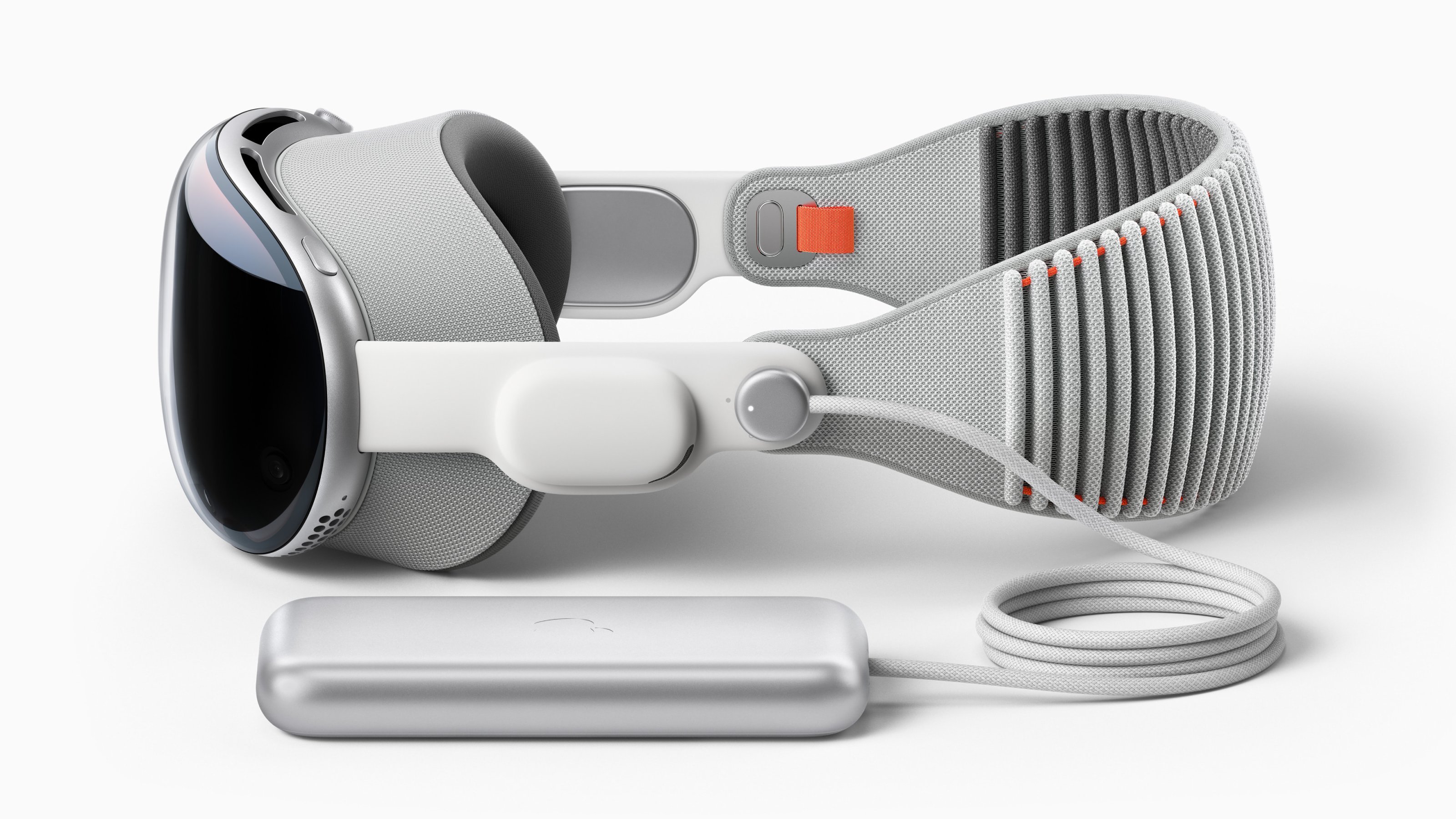
Apple Vision Pro – announced today at the 2023 Worldwide Developers Conference (which also revealed the 2023 Apple Design Awards) – attempts to do what Google and others have failed to achieve and create a premium wearable computing device that transforms the way we interact with digital devices.
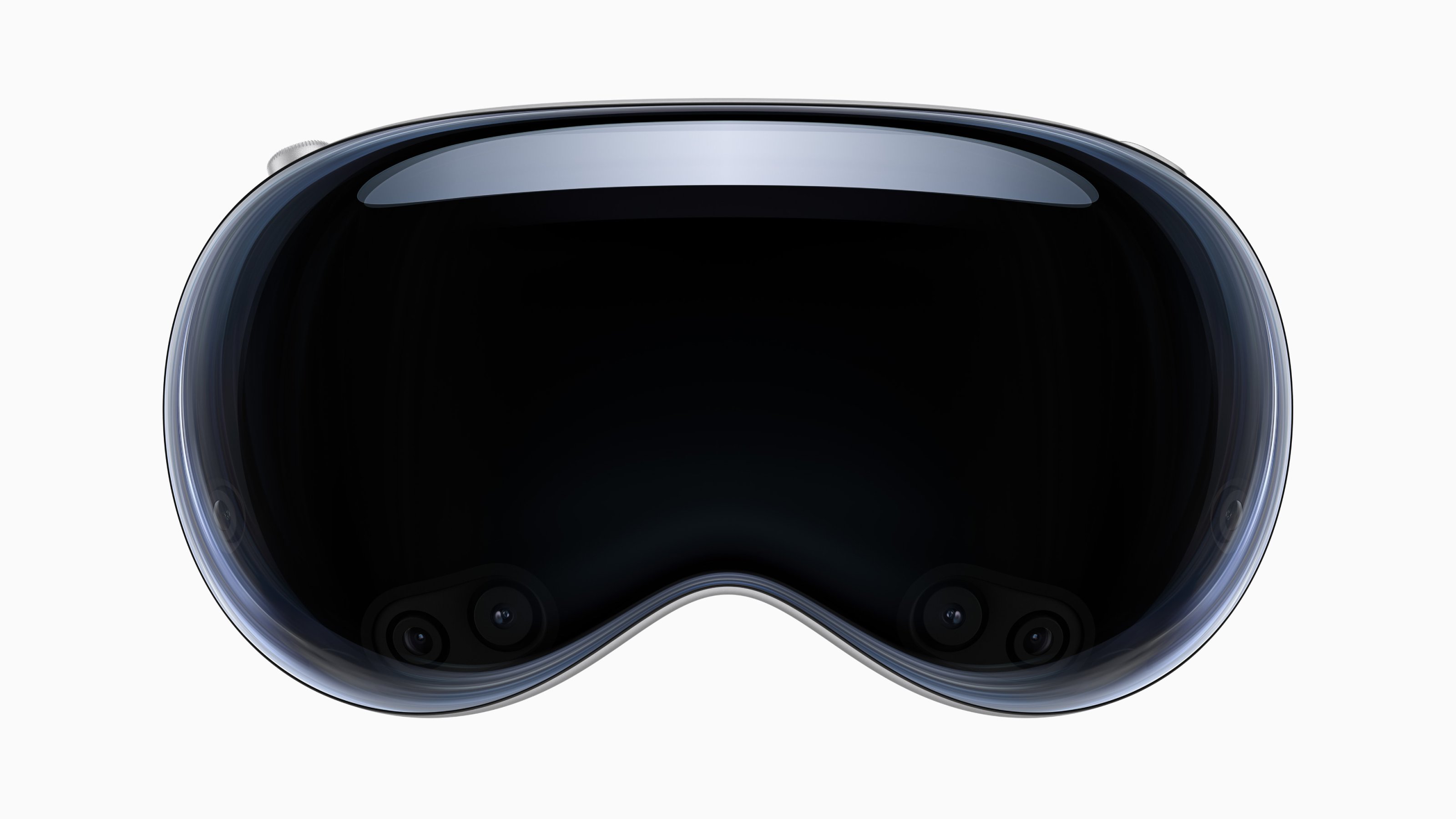
First up, the look. Apple Vision Pro is, inescapably, a pair of heavy goggles, designed to strap securely onto the user’s head. They superficially resemble a classic-style Scuba mask, albeit with meticulous detailing and finishes in glass, aluminium and textiles. A phone-sized battery pack – separate to keep weight down – is attached by a premium cord and can be slipped in a pocket. The goggles themselves have 23-million pixels across two displays, powered by Apple’s own custom silicon.
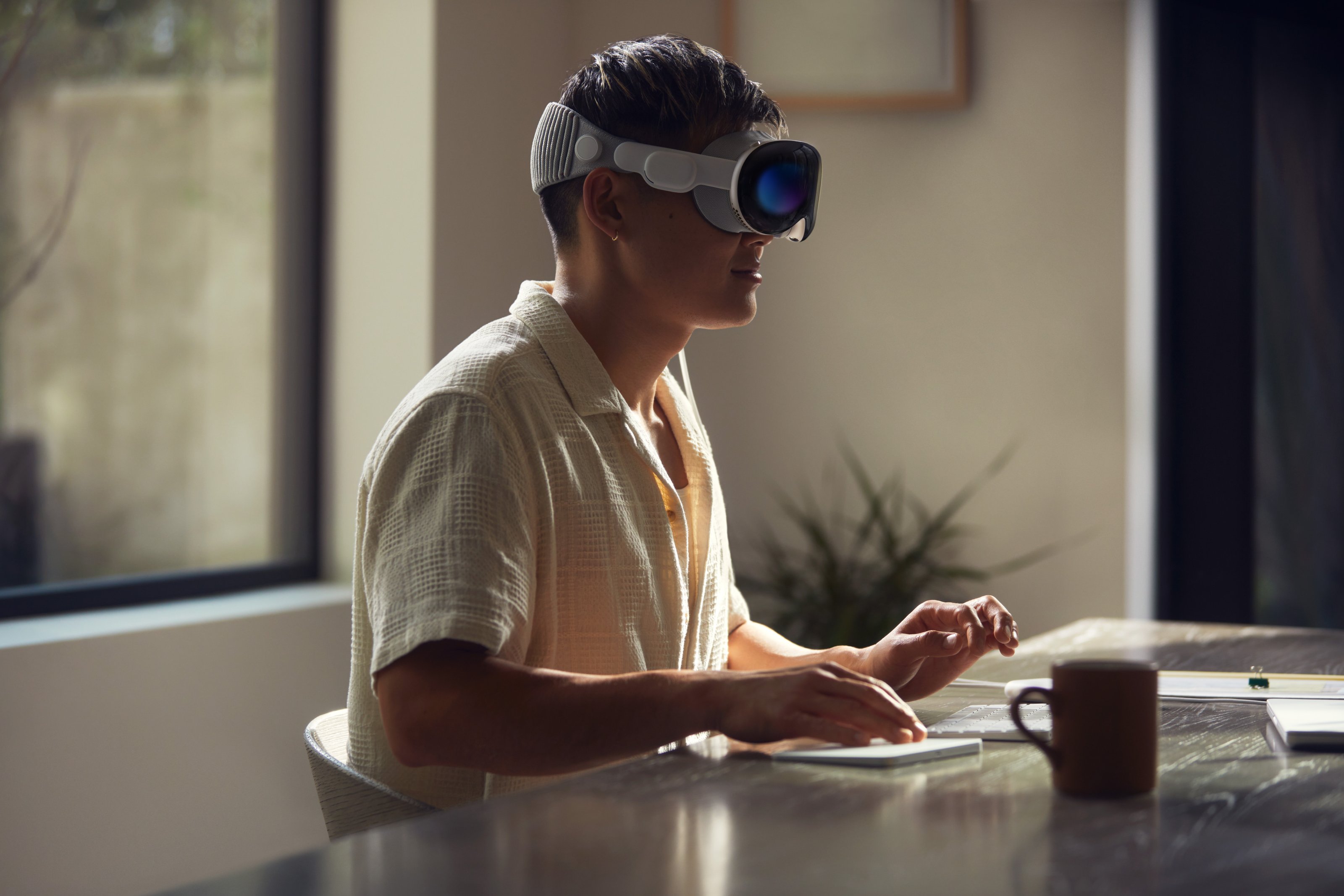
Running the first iteration of Apple’s new visionOS, the ‘worlds first spatial operating system’, Vision Pro allows things like displays, images, screens and apps to be virtually located within the physical space around you: true augmented reality. The headset also incorporates Spatial Audio, as well as a 3D camera system that effectively records your surroundings as if you were ‘there’.
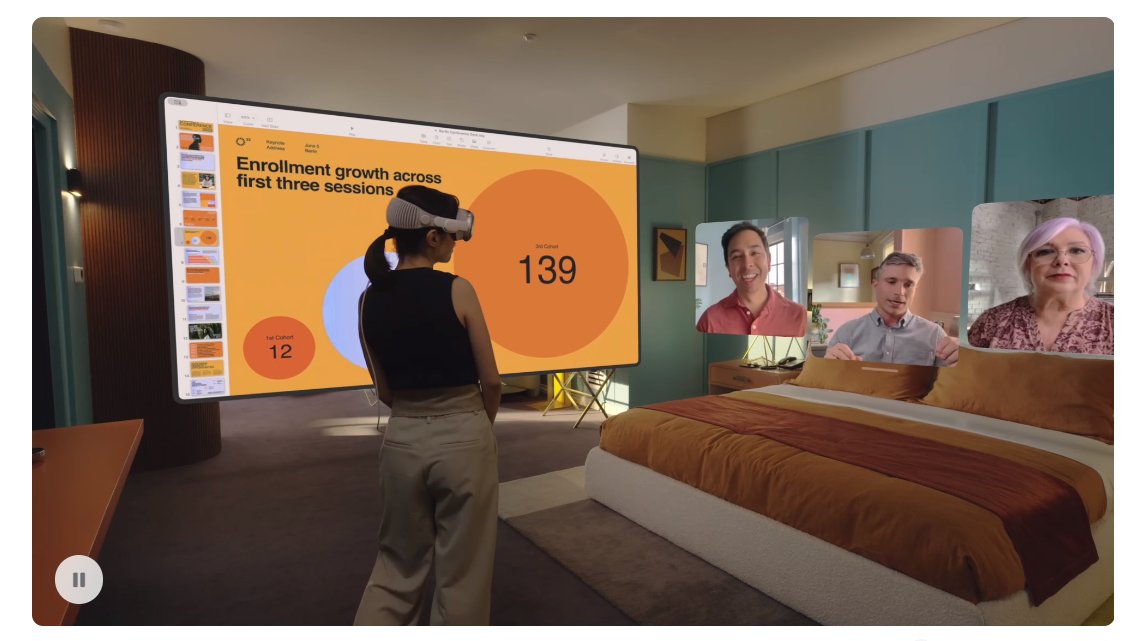
Vision Pro’s desktop is therefore the world that surrounds you, overlaid with all the tools, tasks and diversions you need to work or play. The display can also deliver a completely immersive experience akin to traditional VR, which Apple is calling ‘Environments’. On the top of the Vision Pro is a ‘Digital Crown’, similar to the Apple Watch’s, that can be twisted to moderate your immersion in the pixels.
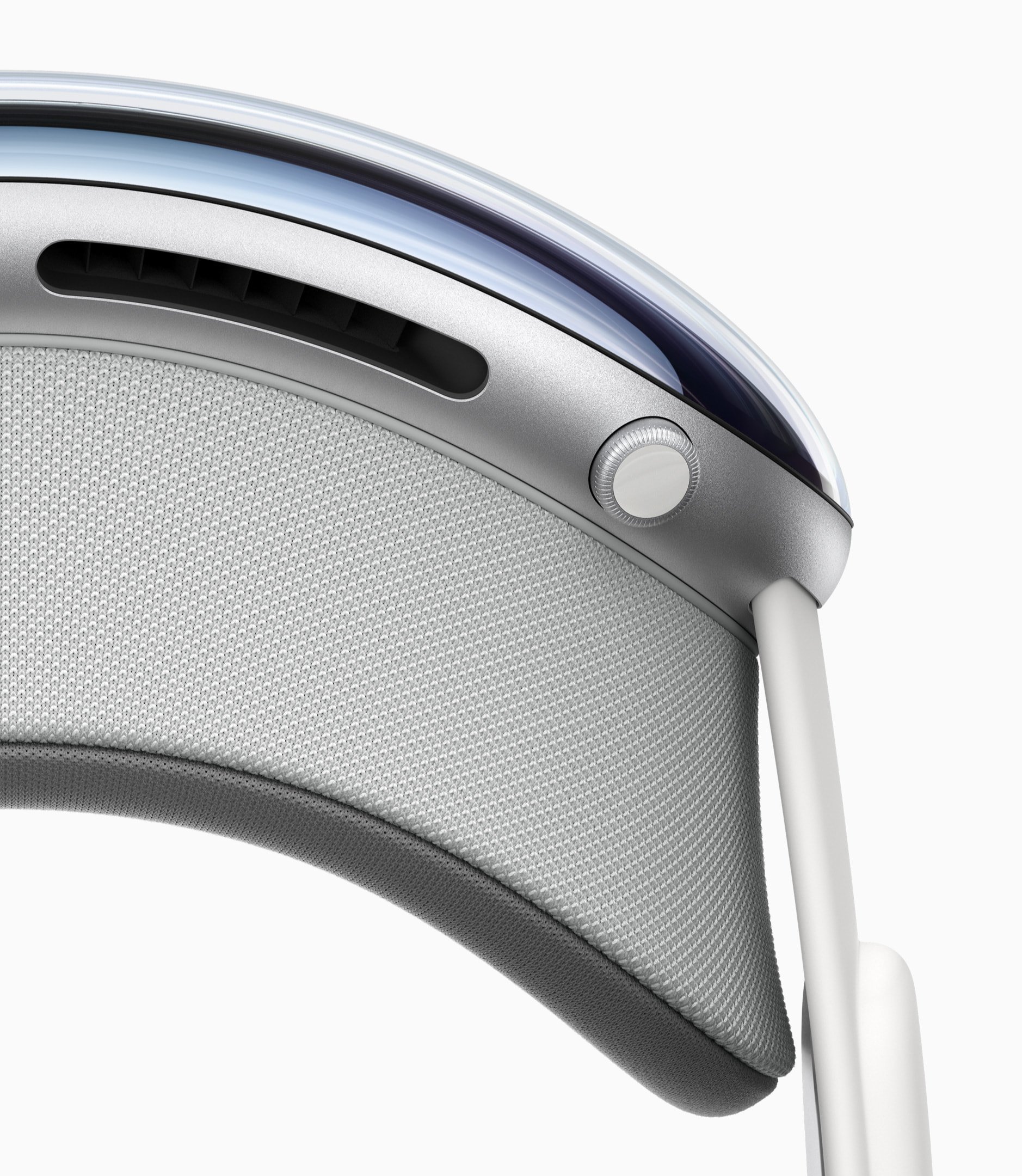
As the company points out, Apple’s history of innovation has always been driven by a ‘new input model’ (the mouse defining the Mac, the iPod click wheel, the iPhone’s touchscreen). VR headsets are by no means a new technology - Sega's ill-fated VR system was first shown in 1991.
Apple has been quietly developing the Vision Pro over many, many years, all the way back to when Jony Ive was at the helm of the design team. Over that time, countless iterations and physical prototypes have been built, but it's only through advances in display technology and chip speed, along with the Apple-honed hardware/software blend, that the company has finally deemed that a consumer version is possible.
Vision Pro and visionOS use your eyes, hands and voice for inputs, with sensors that track our eyes and fingers and also accepts voice commands. Your existing Mac and iPhone can also be brought into the virtual space and operated using a virtual keyboard.
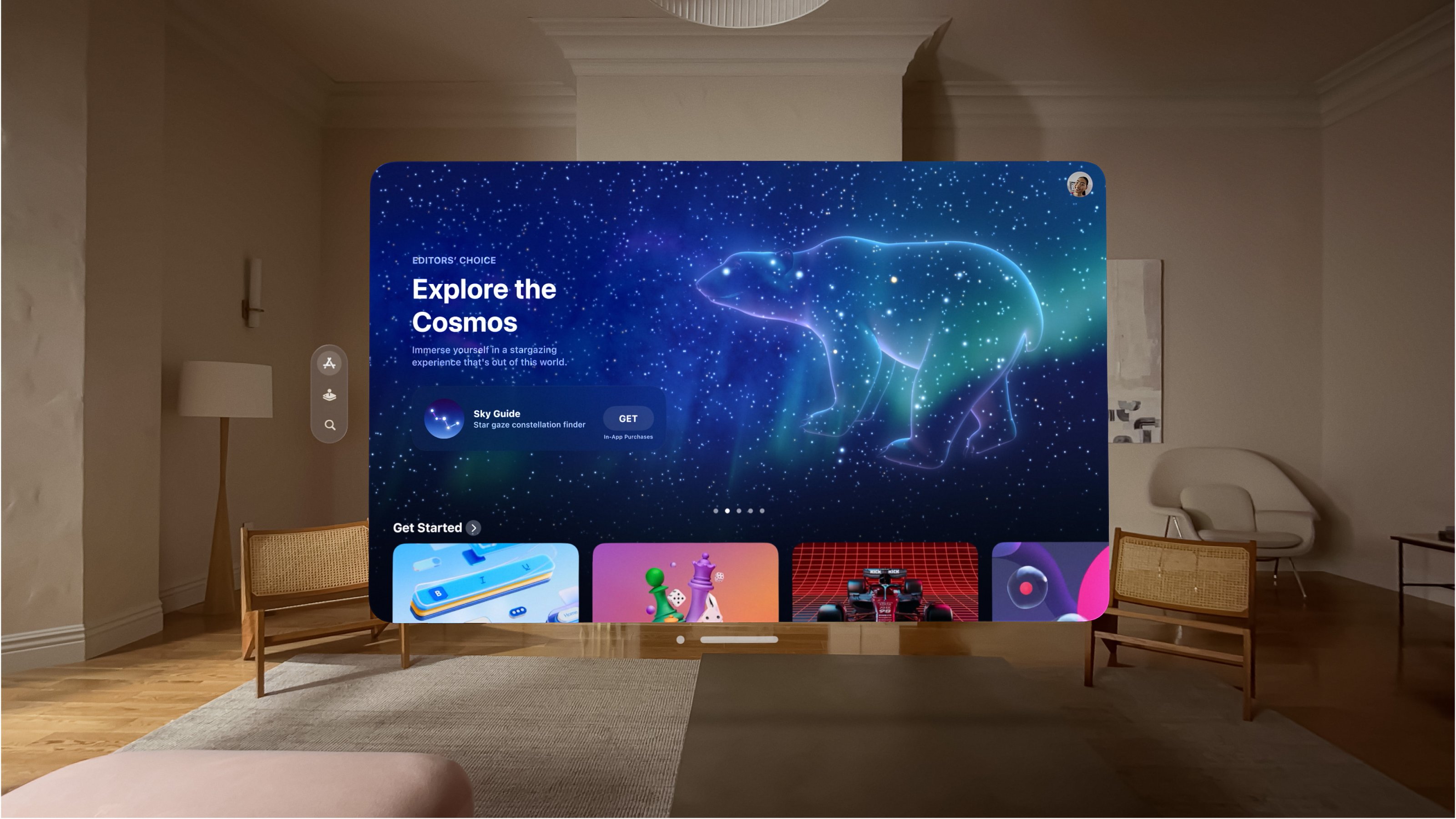
Every new platform lives and dies on the strength of its software. Apple is not yet a major player in the multi-billion-dollar global gaming industry, but Vision Pro could well become a unique and powerful platform in its own right. Another promising application is watching content. The proximity and quality of the displays can be adjusted so they’re the equivalent of a 100in wide cinema screen, with the Environment of your choice as a 360-degree surrounding. Alternatively, you could create the ultimate big-screen TV in the middle of your living room, with the option of not only dimming the lights, but your entire space.
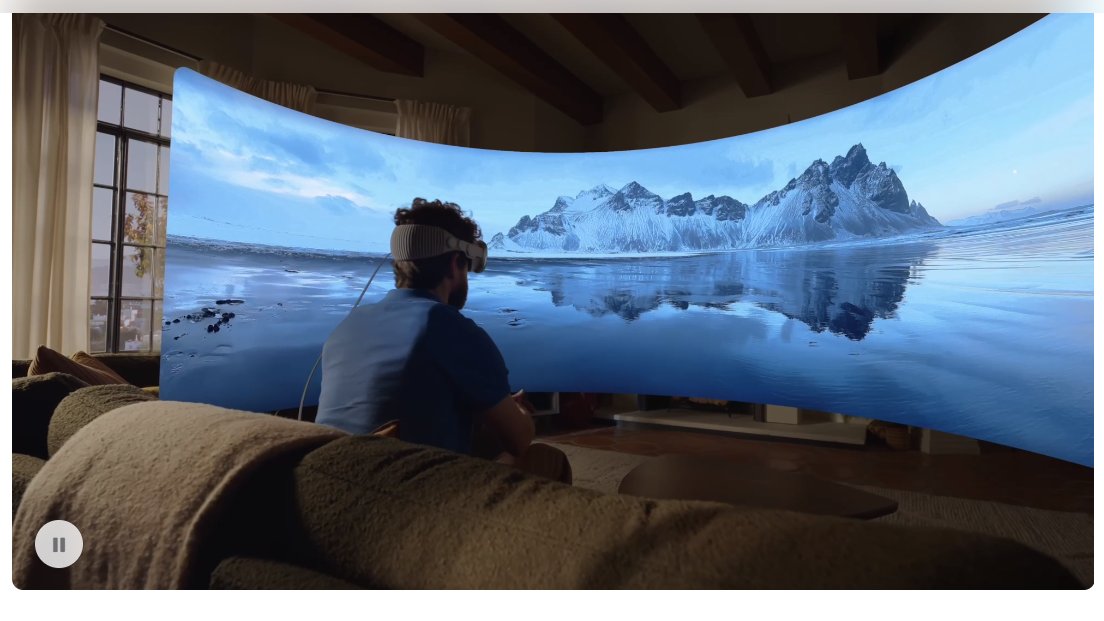
Could Vision Pro be used in public? If anyone approaches, Apple’s EyeSight mode spookily replicates your eyes on an external screen, suitably recessed into the device to appear as close to natural as possible. It’s still a dip into the uncanny. Back in the early days of smartphones, people were initially self-conscious about watching TV shows on public transport. Now everyone does it. Google’s Glass, on the other hand, was not a device anyone wished to be seen in. In contrast, Apple products have a very different cachet and there’ll no doubt be a small army of early adopters and brazen technophiles who will be eager to get out and about with this device on their face.
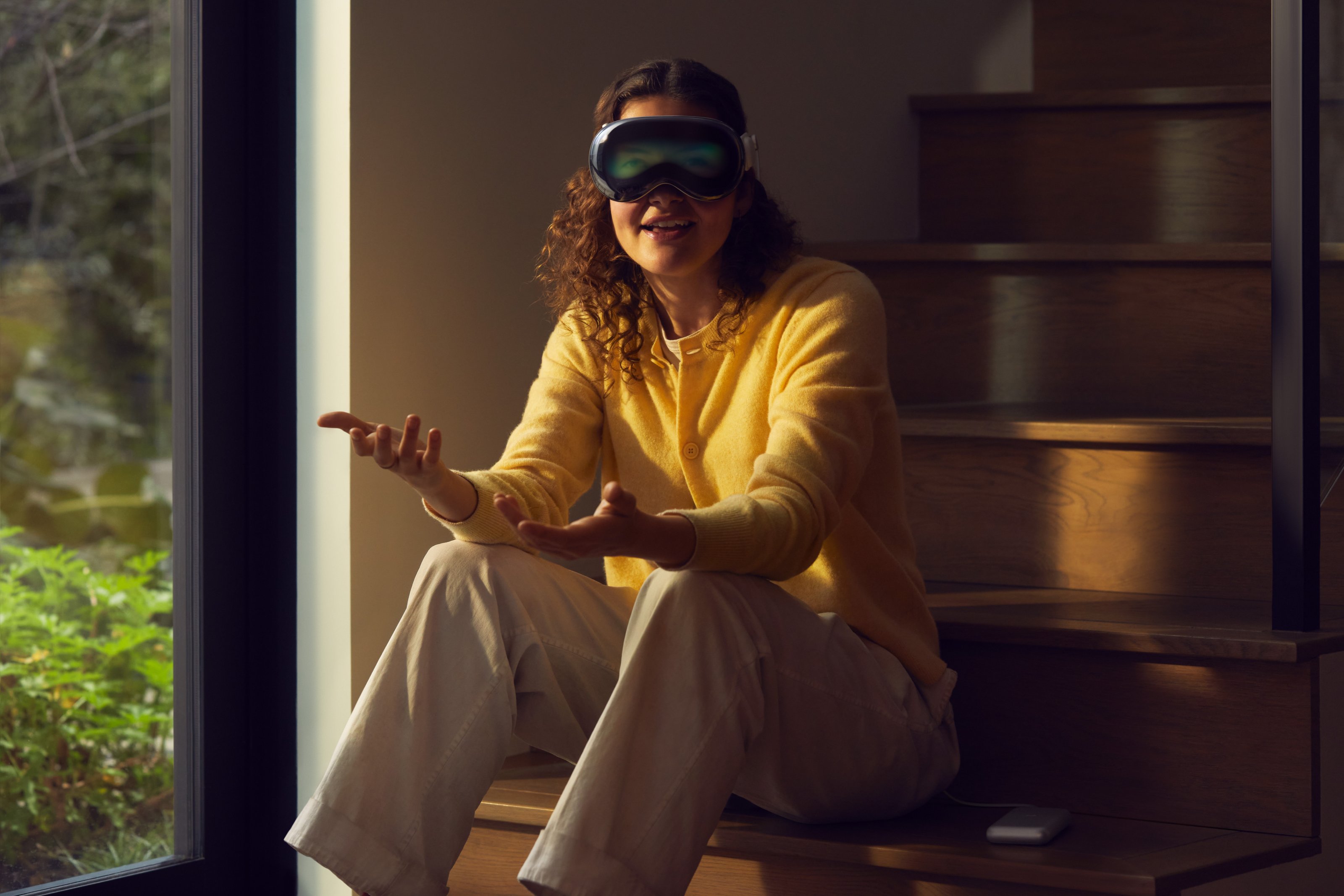
Most of all, this feels like is a home computing device, a superior way of video calling, chewing through box sets, immersing yourself in home movies and remote working in a true bubble. As Tim Cook said, announcing a new content partnership with Bob Iger, CEO of Disney, ‘Apple Vision Pro will change the way we communicate, collaborate, work and enjoy entertainment.’ Ultimately, no amount of Apple Design magic can shrink the Vision Pro’s insectoid-like presence on your face. Watch this space to see how it all pans out.
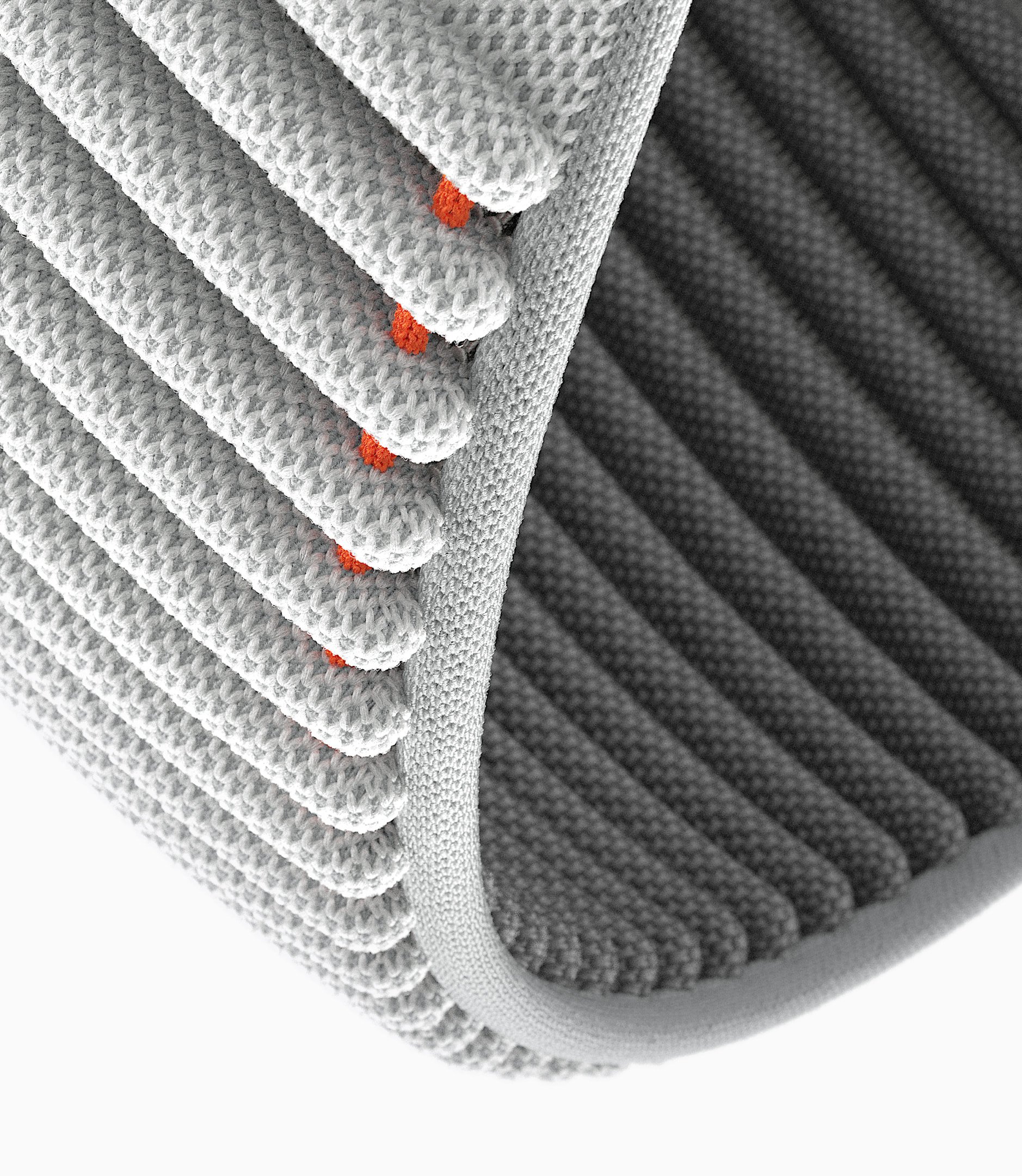
Apple Vision Pro, from $3,499, available in US markets early 2024 at Apple.com







